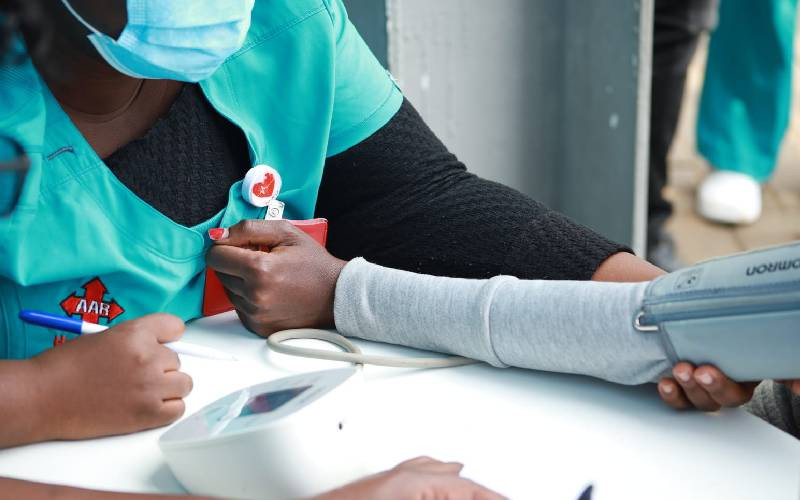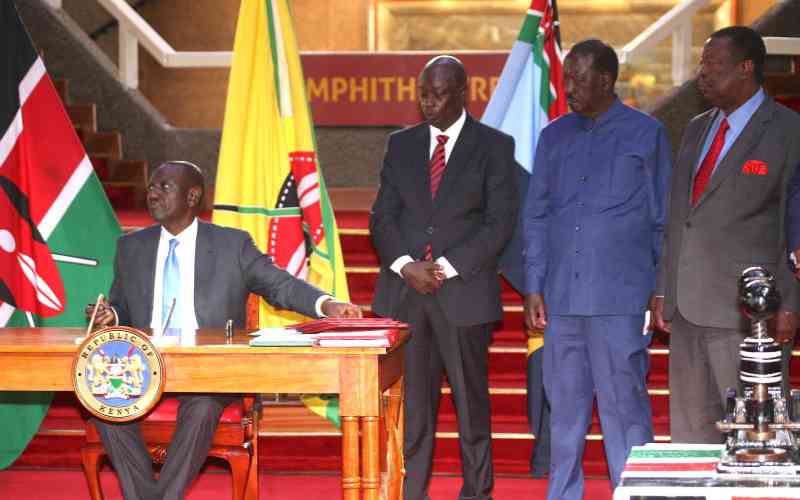
The recent parliamentary debate calling for a ban on highly hazardous pesticides is another significant step in Kenya's fight for food safety and public health.
The debate reaffirms the need for comprehensive policies that ensure the safety of our food supply. Various civic society organizations have been key players in the fight, advocating for stronger regulations and greater accountability within the agrochemical sector.
In 2019, the Route to Food Initiative, a program of the Heinrich Böll Foundation with other partners, published a white paper titled 'Pesticides in Kenya: Why our health, environment and food security are at stake.'
Extensive research supported the paper's recommendation to ban eight active ingredients, already banned in Europe but still exported to developing countries like Kenya.
Findings from this report also formed the basis for the petition to Parliament, petition 70 of 2019, presented by four civic society organizations calling for the withdrawal of toxic pesticides from the Kenyan market.
In response to the petition, the National Assembly Committee on Health, among other recommendations, tasked the Pest Control Products Board (PCPB) with reviewing the list of pesticides allowed in the country and implementing urgent regulations to remove harmful pesticides from the market.
In response to a circular issued by the PCPB, a task force comprising scientists and university professors from Kenya submitted a comprehensive dossier to the PCPB with scientific evidence providing detailed technical information on various pesticides for immediate withdrawal, underscoring the urgent need for regulatory action.
Kenya is a growing market for pesticides. According to the Agrochemical Association of Kenya (AAK), pesticide imports more than doubled between 2015 and 2018. Sales data reveals that one or more active ingredients classified as highly hazardous pesticides (HHPs) comprise 76 percent of the total volume of pesticides used in the country.
The Pesticide Atlas, launched in 2022 by the Heinrich Boell Foundation, provided facts and figures on the most used toxic pesticides in Kenya, as well as crops that required hazardous pesticides for pest control.
This resource highlighted the growing global pesticide market, with a few corporations increasingly investing in countries in the Global South where pesticides are less strictly regulated.
Another report, "Toxic Business: Highly Hazardous Pesticides in Kenya," published in September 2023, reinforced the urgent need for change and the push for alternative uses of pesticides. The report showed that Kenyan farmers used 310 pesticide products containing 151 active ingredients, applying 3,068 metric tons of these products.
Surprisingly, 195 of these products (63 per cent) meet the criteria for HHPs as stipulated by the World Health Organization, making up 76 per cent of the total volume of pesticides used.
Major agrochemical companies dominate the market, with Syngenta leading with a 20 per cent market share, Bayer AG with 15 per cent, and Corteva AgriscienceTM with 7.7 per cent, raising questions of corporate accountability.
The Kenyan government has taken necessary steps toward regulating certain harmful pesticides in recent months, with the recent developments by PCPB to withdraw seven of the eight active ingredients by 2024. However, more needs to be done.
We must immediately withdraw pesticides like mancozeb/metalaxyl-M, paraquat, mesotrione, and imidacloprid that still pose significant health and environmental impacts.
It is important to acknowledge that not all pesticides are harmful when used correctly. Pesticides play a crucial role in agriculture by protecting crops from pests and diseases, which can significantly impact food security. The problem arises with the misuse and overuse of these chemicals, particularly those classified as HHPs.
Instead of a complete eradication of pesticides, there should be a balanced approach. This entails the responsible and judicious use of pesticides, the promotion of safer alternatives, and the gradual phase-out of the most dangerous chemicals.
Integrated Pest Management (IPM) strategies offer a way forward, combining biological, cultural, and mechanical control methods with the careful use of chemical pesticides when absolutely necessary.
Additionally, we should promote research efforts to develop and promote biopesticides and biocontrol methods as alternatives to HHPs.
This will make biopesticides available and affordable for all farmers, as well as encourage widespread adoption of sustainable pest management practices.
Lastly, it is important to hold agrochemical companies accountable by regulating and monitoring their activities, promoting transparency, and encouraging responsible practices.
Civic society organizations and others have consistently published reports and data that demonstrate the need to protect and safeguard the right to safe food as a human right for all, whether in EU countries or the global south. Evidence has exposed pesticides' harmful effects on people and the environment, calling for alternatives.
Sales data has proven the growing appetite by agrochemical multinationals to export harmful products to the African market, which has weaker regulations.
Reports have exposed the EU countries' double standard, imposing strict regulations on the use of toxic pesticides on farm products, yet allowing the same products to be used in other countries.
The parliamentary discussion is a testament to the growing awareness and urgency of addressing pesticide-related issues in Kenya.
 The Standard Group Plc is a multi-media organization with investments in media platforms spanning newspaper print
operations, television, radio broadcasting, digital and online services. The Standard Group is recognized as a
leading multi-media house in Kenya with a key influence in matters of national and international interest.
The Standard Group Plc is a multi-media organization with investments in media platforms spanning newspaper print
operations, television, radio broadcasting, digital and online services. The Standard Group is recognized as a
leading multi-media house in Kenya with a key influence in matters of national and international interest.











